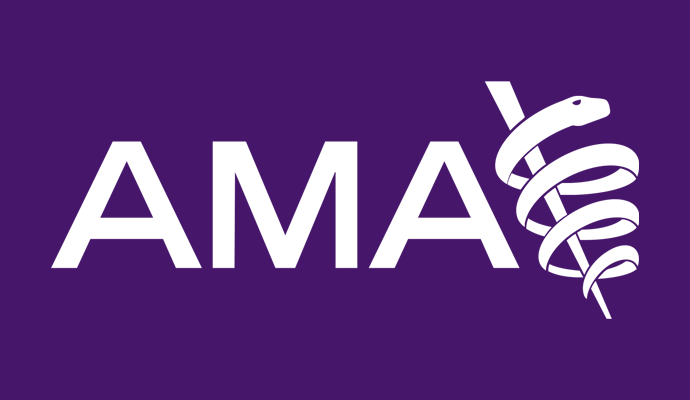AMA Shares Wishlist for Physician Practice Relief During COVID-19
Medicare and Medicaid payment adjustments, more small business loan funding, and greater telehealth coverage are among the measures AMA and others want for Phase 4 of COVID-19 help.

Source: American Medical Association
- The Coronavirus Aid, Relief, and Economic Security Act (CARES Act) was a meaningful step in helping the healthcare system manage the COVID-19 crisis, but more needs to be done in “phase four” of coronavirus relief to support physician practices, the American Medical Association (AMA) and over 100 other medical societies recently told lawmakers.
For more coronavirus updates, visit our resource page, updated twice daily by Xtelligent Healthcare Media.
“Given the magnitude of the growing revenue shortfalls confronting physician practices across the country, we continue to need your support to preserve their viability so they can meet the needs of all patients,” the groups wrote in an April 15 letter to Congressional leaders.
A recent report from the Medical Group Management Association (MGMA) found that physician practice revenue has been cut in half during the unprecedented public health crisis, while patient volumes have sunk by 60 percent on average.
Without revenue from elective procedures coming in, a majority of independent medical groups are slated to deplete their cash reserves within two months, new data from AMGA (American Medical Group Association) showed.
Fearing physician practices could shutter their doors during the crisis, the 138 state medical societies and national physician specialty organizations urged lawmakers to adjust Medicare and Medicaid reimbursement and coronavirus-related payment programs.
“We believe it is vital that Congress implement a positive update similar to those other providers received in 2020, as physicians put their lives on the line to treat patients with COVID-19 and incur significant financial hardship due to canceled nonurgent but still medically necessary procedures and visits to slow the spread of the virus,” the groups wrote.
2020 was the last year providers received a positive Medicare reimbursement update per the Medicare Access and CHIP Reauthorization Act (MACRA) of 2015.
“Congress could not have predicted that the first year without a positive payment update to the Medicare Physician Fee Schedule would come at the beginning of a public health emergency like the one that faces our nation today,” the groups stated.
The positive updates should also apply to Medicaid and TRICARE reimbursement rates during the public health emergency, the groups suggested.
Additionally, they requested that future coronavirus relief packages extend the sequestration of Medicare reimbursement through the end of 2021 and waive budget neutrality for Medicare reimbursement updates for evaluation and management services that are slated to take effect next year.
The groups also called for changes to the Medicare Accelerated and Advance Payment Program, which was expanded under the CARES Act in March to offer upfront payments to more providers and postpone the start of recoupment to up to a year after initial payment.
“[W]e have heard significant concerns about the ability of physician practices to repay this amount of money while patients remain at home and physicians delay non-essential procedures and visits to preserve protective equipment and slow the spread of the virus, and there are statutory fixes needed to help physician practices,” the groups wrote.
To ensure the program benefits physician practices during the crisis, the groups recommended the following changes:
- Postpone recoupment until 365 days after the advance payment is issued
- Lower the per-claim recoupment amount from 100 percent to 25 percent
- Extend the repayment period for physicians to at least two years
- Waive the interest that accrues during the extended payment period
- Allow HHS to issue more than one advance payment
Small business loans similar to the ones created by the CARES Act would also support physician practices, the groups advised.
The CARES Act created new options for small businesses to take out loans to support their staff during the crisis. One of those programs – the Payroll Protection Program – has proved valuable, keeping small businesses from laying off staff.
However, within weeks of its launch, the program is currently out of funds. And those funds were never available to larger physician practices that operate more than one location.
“The AMA recommends that Congress include provisions to apply the same exception to these physician practices that applies to the Accommodation and Food Services Industry that operate at more than one physical location with 500 or fewer employees per location,” the letter stated. We also recommend extending to physician practices the affiliation rule waiver that has already been applied to the Accommodation and Food Services Industry.”
Other legislative steps supported by the AMA and signatory groups included:
- Direct financial support, grants, and interest-free loans for physician practices of all sizes
- Requirements for ERISA health plans to cover telehealth and telephone services being provided by Medicare for the duration of the public health crisis
- Medical school debt relief for third- and fourth-year students who are willing and competent to start providing early direct patient care
- Clarify HHS authority to issue waivers of the Emergency Medical Treatment and Labor Act (EMTALA)
- Broader liability protections for physicians
Phase four of coronavirus relief legislation is still currently being drafted by lawmakers, but pressure is mounting for a package to be complete. Sources have said the potential legislation could provide as much as $250 billion in additional money to help small businesses.
